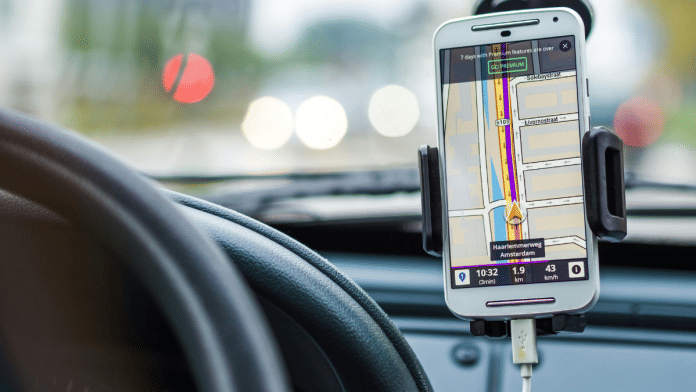The car’s satnav says you’ve arrived at your hotel, but all you can see are cows in a field.
Sometimes, GPS – or global positioning systems, which use signals from satellites to pinpoint a location – lets us down. But have you ever wondered why it can go wrong?
Going out of range – into a steep valley or dense forest – can be enough to derail your car’s GPS, but there are other, more malicious, reasons global navigation satellite systems (GNSS) fail.
GNSS, used in everything from planes and boats to precision-guided bombs, is “susceptible to jamming, imitation, or denial”, says the UK’s Imperial College London.
Spoofing – in which false signals are sent out to fool a GPS device into thinking it’s somewhere else – is another issue, with almost 50,000 incidents reported on planes during 2022, a five-fold increase on the previous year’s tally, according to the European Business Aircraft Association.
Which is why scientists and governments are focused on a back-up plan. Step forward quantum navigation.
What is quantum navigation?
It’s all about atoms, essentially. Where satellite navigation relies on the signal bouncing back from space, quantum navigation focuses on the movement of a single atom tracked under cryogenic conditions, explains science publication New Atlas.
Instead of a satellite floating in space, a quantum navigation system is within each individual vehicle, with measurements being made “at point of use”. This means the signal “doesn’t drift”, making interception much harder to achieve, says Richard Claridge, a physicist at PA Consulting Group.
In May, the UK carried out two separate quantum navigation tests – one aboard a Royal Navy ship and another on a small jet plane. The following month, London’s underground transport system became a testing site for the technology.
The tests successfully demonstrated that quantum navigation is ‘unjammable’, and the UK’s research is paving the way for the technology to be rolled out more widely in the future.
Will quantum navigation replace GPS?
It’s been estimated that a single day of satellite service outage would cost the UK over $1.3 billion. So governments and businesses are certainly keen to find a solution.
But quantum navigation systems are unlikely to replace GNSS any time soon. Ultra-cold atoms are needed to achieve quantum navigation, and the equipment is currently sizable. Even when the machines shrink down in the coming years, quantum navigation will probably be used as back-up rather than a full replacement for GPS in many situations, say experts.
They are also likely to be deployed in situations where there is no GNSS, such as underwater, says Claridge.
“You’re not going to get rid of your satellite systems, they are very convenient,” Henry White, part of the BAE Systems team that worked on the plane test flight, told the BBC.
The benefits of satellite data
And of course, satellites will continue to benefit life on Earth in other ways, too.
By 2030, Earth observation (EO) insights are expected to generate more than $700 billion, according to the World Economic Forum’s report, Amplifying the Global Value of Earth Observation. In the process of contributing to the world economy, EO satellite data is monitoring extreme weather events and water quality, predicting poverty rates and much more, says the Forum.
For instance, Earth observation is expected to be indirectly responsible for removing 2 gigatons of greenhouse gases annually, as a result of the data gathered on climate change that then becomes actionable.
The Forum also estimates that 16 out of the United Nation’s 17 Sustainable Development Goals can be supported by EO.
So the future of satellites is certainly not threatened by the advancement of quantum technology. But the future of transport could be about to get safer and more reliable.






